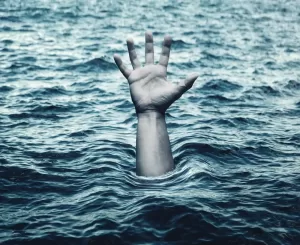Recognising Depression
What are the symptoms of Depression?
What is depression?
Depression is a disease which causes you to become trapped in a state of painful sadness for most of the time. Doctors often say it becomes true depression if it’s lasted more than 2 weeks. If you’re reading this article and wondering if you’re suffering from depression, then you’re probably already feeling sad enough to need medical advice. You may be surprised to learn that getting the right kind of medical help can aid your recovery.
Because happiness and sadness are so personal and subjective, it can be difficult to know whether you have the disease “depression” or not- some of the following information may help.
Symptoms of Depression may include:
- Anxiety.
- Decrease or increase in appetite – maybe you feel you’re forcing yourself to eat, or maybe you’re comfort eating.
- Bad sleep – particularly not falling asleep easily or waking in the early hours.
- Easily losing your temper at silly things, or easily becoming tearful.
- Fatigue, loss of energy.
- Loss of motivation – finding it hard to get out of bed, leave the house or meet people.
- “Anhedonia” – the inability to enjoy the things you would normally enjoy.
- Either fidgeting or becoming slow-moving.
- Feelings of guilt or self-loathing.
- Wanting to die.
- Severe depression can also sometimes lead to delusions and hallucinations.
Depression may be:
- Recurrent (and sometimes seasonal) – it comes and goes.
- Persistent – most of the time.
- Part of a bipolar disorder involving distinct episodes of unusual upswings in mood.
Depression may also be:
- “Reactive” – there’s a cause, for example the death of loved one or the breakdown of a relationship.
- “Endogenous” – there’s no obvious trigger. You just feel that way. If this is the case, it can be harmful to keep looking for a cause, as this will only delay your acceptance of your illness and cause you guilty feelings – “I shouldn’t feel like this.”
Both reactive and endogenous depression can be extremely serious illnesses.
Some advice that you may find helpful:
- If you’re depressed, you’ll almost certainly worry what people will think if you admit you’re unwell. In that case, you should ask yourself the following question: “If somebody I know told me they were sick with depression, how would I react?”
By not telling our loved ones that we’re unwell, we deny them the opportunity to help.
- If you feel there’s nobody you can turn to, please tell a GP – there should be nothing embarrassing about it and it could actually be the first step to feeling happy again.

- You’re not alone – about 3 million Australian adults have a mental illness. There are so many unhappy people, feeling paralysed by the thought of getting help. Half of all of us have a mental illness at some point. That means there’s a good chance that even your GP has had a mental illness.
- In the meantime, if you think you may be suffering from depression, talk it through with your GP or read more at the Beyond Blue website.
Getting a Mental Health Care Plan in Australia: Your Guide
Getting a Mental Health Care Plan in Australia: Your Guide Mental health matters—and if you’re feeling overwhelmed, anxious, or down, a mental health care plan can help. But what is it, and how do [...]
UTI Symptoms and Treatment: What You Need to Know
UTI Symptoms and Treatment: What You Need to Know Urinary Tract Infections (UTIs) are common, uncomfortable, and often disruptive. But what exactly are the signs to watch for, and how can you get relief [...]
Free Mental Health Care Plan Online | Bulk-Billed by Qoctor
Free Mental Health Care Plan Online | Bulk-Billed by Qoctor Discover how to get a free, bulk-billed Mental Health Care Plan (MHCP) in Australia through Qoctor's telehealth service. Accessing [...]




